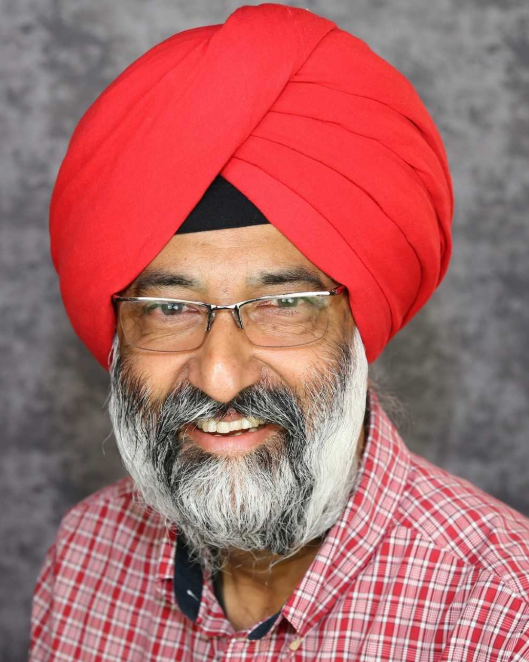A Bittersweet Parliament
Sharing Joy and Pain in Toronto
by Tarunjit Singh Butalia
As someone who has been involved for about two years with the planning of the Toronto Parliament of the World’s Religions, while driving to Toronto I felt like a student the night before final exam week. However, as soon as I walked into the Metro Toronto Convention Center and the hugs and handshakes began, all felt good again. I was at the reunion of the largest and most diverse interfaith party in the world! It was a joy to be with about 8,000 persons of faith and conscience from all over the world to share our hope for a better future for our children and grandchildren through our individual and collective faith commitments.
The Joy of Giving
The local Sikh community (led by the Ontario Sikh and Gurdwara Council) worked with other Canadian and international Sikhs to serve langar daily at lunchtime during the Toronto Parliament. Langar is the Sikh word for “open kitchen.” It was started by the first Sikh Guru, Siri Guru Nanak Sahib, and represents the principle of equality among all people regardless of religion, caste, color, creed, age, gender, or social status. Additionally, the tradition of Langar expresses the ethics of sharing, community, inclusiveness, and oneness of all humankind. Regardless of who provides the funds for the food and its distribution, it is called ‘Guru ka Langar.’ The Langar institution represents “sharing” and not “charity” and is a simple meal, not a feast.
Langar at the 2018 Parliament – Photo: United Religions Initiative
It was quite a sight to see hundreds of attendees lined up outside the Langar Hall during lunchtime, removing shoes and covering their heads with scarves, and then sitting cross-legged in rows eating the same South Asian food while talking with people from other parts of the world and different religions. Only vegetarian food was offered to ensure that all people, regardless of their dietary restrictions, could eat as equals and no one goes hungry. Over fikve days, Sikhs served over 20,000 meals in the spirit of sharing fruits of honest labor with others. The volunteers worked seamlessly like water flowing in a river passing through a flat meadow. I was particularly impressed with the langar being served without anyone being visibly in charge.
I was asked which Sikh individuals to recognize for the langar at the closing ceremony. My response was that focus on Sikh individual personalities ended with our Tenth Guru, so no one person or organization needs recognition, but thanks can be offered to all the volunteers who helped with the ‘Guru ka Langar.’ And so we celebrated another Parliament with a Langar dedicated to all the volunteers who joined their heads, hearts, and hands to share a meal with fellow human beings.
A Bitter Edge
Swami Agnivesh – Photo: Wikimedia
So much for the joys of Toronto. The first week of November is a time of reflection and a painful reminder for the Sikh community as it is the anniversary of the pogroms against Sikhs of November 1984 – during which over 3,000 Sikhs were killed across India by ravaging mobs with support from the government. The accused went scot free and impunity continues 34 years later. Some of the Sikh plenary speakers chose to share this pain in the safe space created at the Parliament. Among them was Swami Agnivesh, who raised the issue in the opening remarks of his plenary address.
Not everyone understood the depth of pain the Sikh community experiences during this time of year and therefore why we felt it was important to express it during the Parliament. A Jain friend approached me towards the end of the Parliament asking why 34 years later Sikhs were raising the pain of November 1984 during this gathering. In response, I said that I wonder why around this time of the year, Hindus still burn the effigy of Ravana centuries later and why the Jewish community still commemorates the Kristallnacht (Night of Broken Glass). Later my Jain friend graciously apologized.
November 1984 was the Kristallnacht of the Sikh community. One of the Sikh survivors of that genocide was at the Parliament and received a standing ovation when introduced at the opening plenary.
Photo: Wikimedia
Let there be no doubt that peace without justice is a peace of the graveyard. Expecting religious minorities to self-censor themselves at public forums such as the Parliament in the interest of any nation state is unacceptable. The Sikh community stepped out of its anguish to share its story with compassion at the event. We need our friends in faith to stand with us while we stand with them to confront bigotry, hate, and dehumanization – irrespective of where it raises its ugly head. As Dr. Martin Luther King Jr. reminds us: “In the end, we will remember not the words of our enemies, but the silence of our friends.”
This has been a bitter-sweet Parliament for me. Bitter because this time of the year reminds me and the Sikh community of the continuing raw pain of the November 1984 massacres in India. The sweetness of the hugs, the musical concert, the compassion of the attendees, the smiles of children, the dedication of the staff, and the promise of love as well as hope for the future will be cherished by me for a long time – till we meet again in a few years half way across the world for the next Parliament of the World’s Religions! Till then we are now back home – doing the real work of being instruments of God in making our world a more peaceful and just place for all.
Header Photo: Bittersweet berries – Photo: liz west, C.c. 2.0





